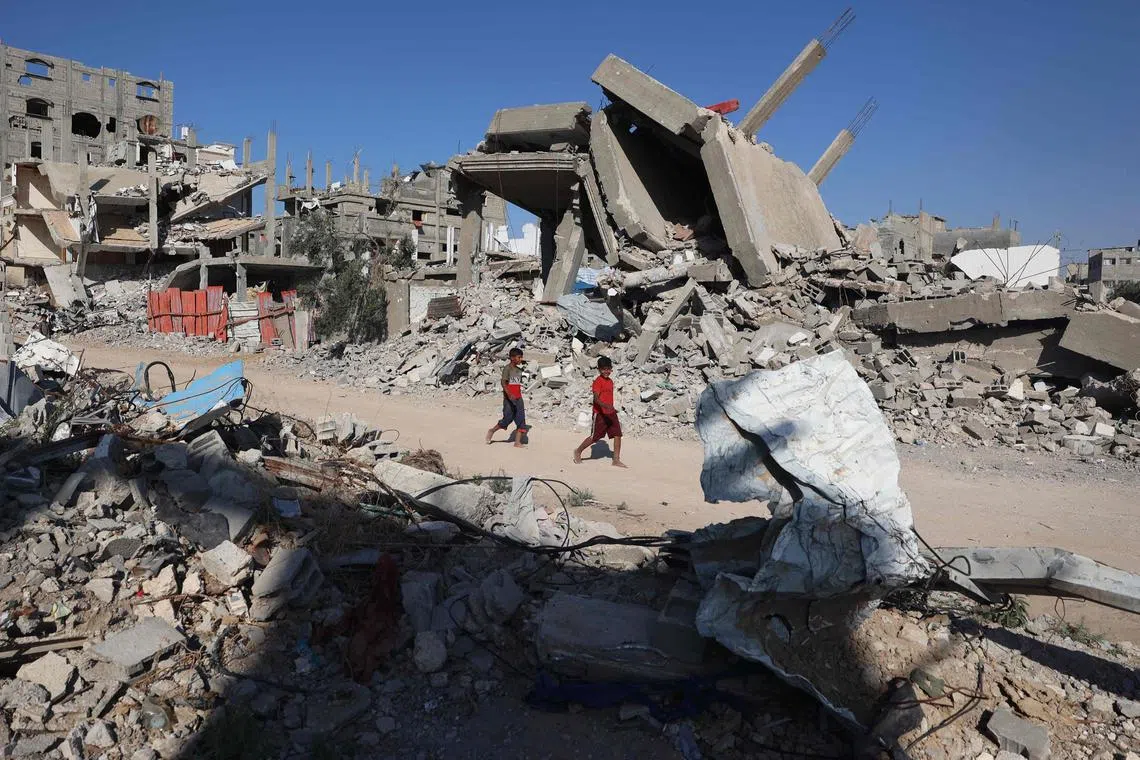UN warns rising temperatures threaten to worsen humanitarian crisis in Gaza
Sign up now: Get ST's newsletters delivered to your inbox

The lack of clean drinking water has become a top concern as it gets hotter and Palestinians face dehydration.
PHOTO: AFP
Follow topic:
GAZA STRIP, Palestinian Territories – Aid groups remain unable to deliver “basic necessities” including tents and clean drinking water to millions of Palestinians in the Gaza Strip as temperatures rise and diseases spread, a United Nations humanitarian official said June 2, as talks continued about reopening a critical border crossing that has been closed for weeks.
Mr Scott Anderson, a senior official at UNRWA, the main UN agency aiding Palestinians in Gaza, told CBS News on June 2 that the trickle of supplies has not been enough to meet people’s basic needs.
He added that aid organisations in Gaza have been “perpetually playing catch-up” since the war began in October 2023 and that an insufficient number of tents has meant displaced people are “sleeping outside, still, eight months after the start of the conflict”.
The lack of clean drinking water has become a top concern as it gets hotter and Palestinians face dehydration as well as the spread of infectious disease, Mr Anderson said.
The World Health Organisation has warned that cases of hepatitis A and diarrhoea are rising, and other diseases such as cholera could quickly become more prevalent without improved access to clean water, he added.
The challenge facing relief groups has been exacerbated by the closure of the border crossing with Egypt at Rafah, the southern Gaza city where Israel has been carrying out an offensive in recent weeks.
The Rafah crossing has been an important conduit for getting desperately needed humanitarian assistance into the enclave, and for allowing sick and wounded Palestinians to leave.
Israel seized the crossing in early May at the beginning of its offensive in Rafah, where more than one million displaced Gaza residents crammed after Israeli evacuation orders repeatedly directed residents to clear out of other areas and head south.
Egypt has shuttered its side of the Rafah crossing since Israel took control of the other side, and Egyptian, Israeli and Palestinian officials have wrangled over how to reopen the crossing to aid.
On June 2, Israeli, Egyptian and US officials met in Cairo to discuss reopening the crossing, according to Egyptian state news media.
Details on the discussion or any outcome were not immediately available. Before the talks, an Israeli official who spoke on condition of anonymity to discuss the sensitive subject had confirmed that the crossing would be the focus. THE NEW YORK TIMES

